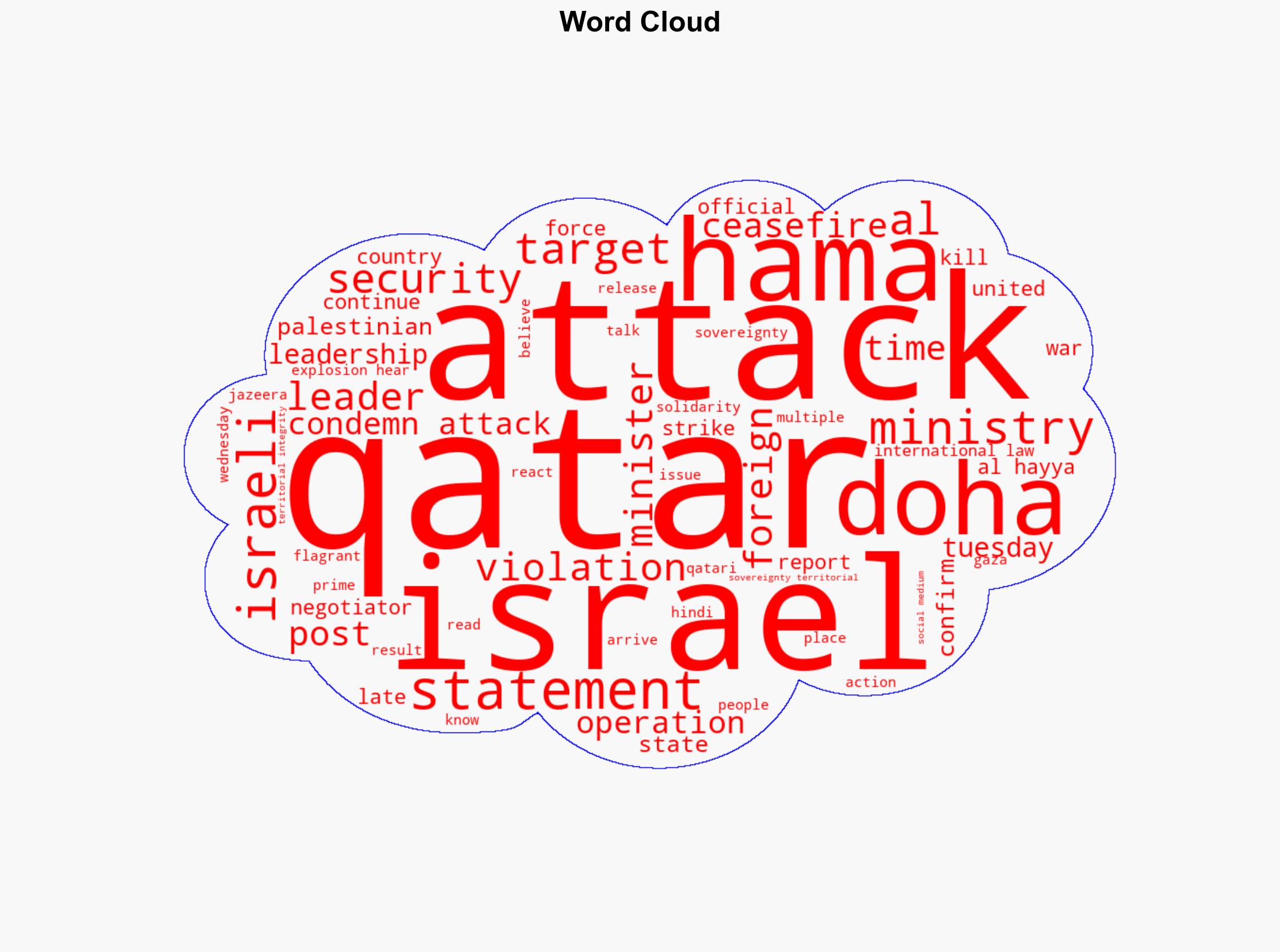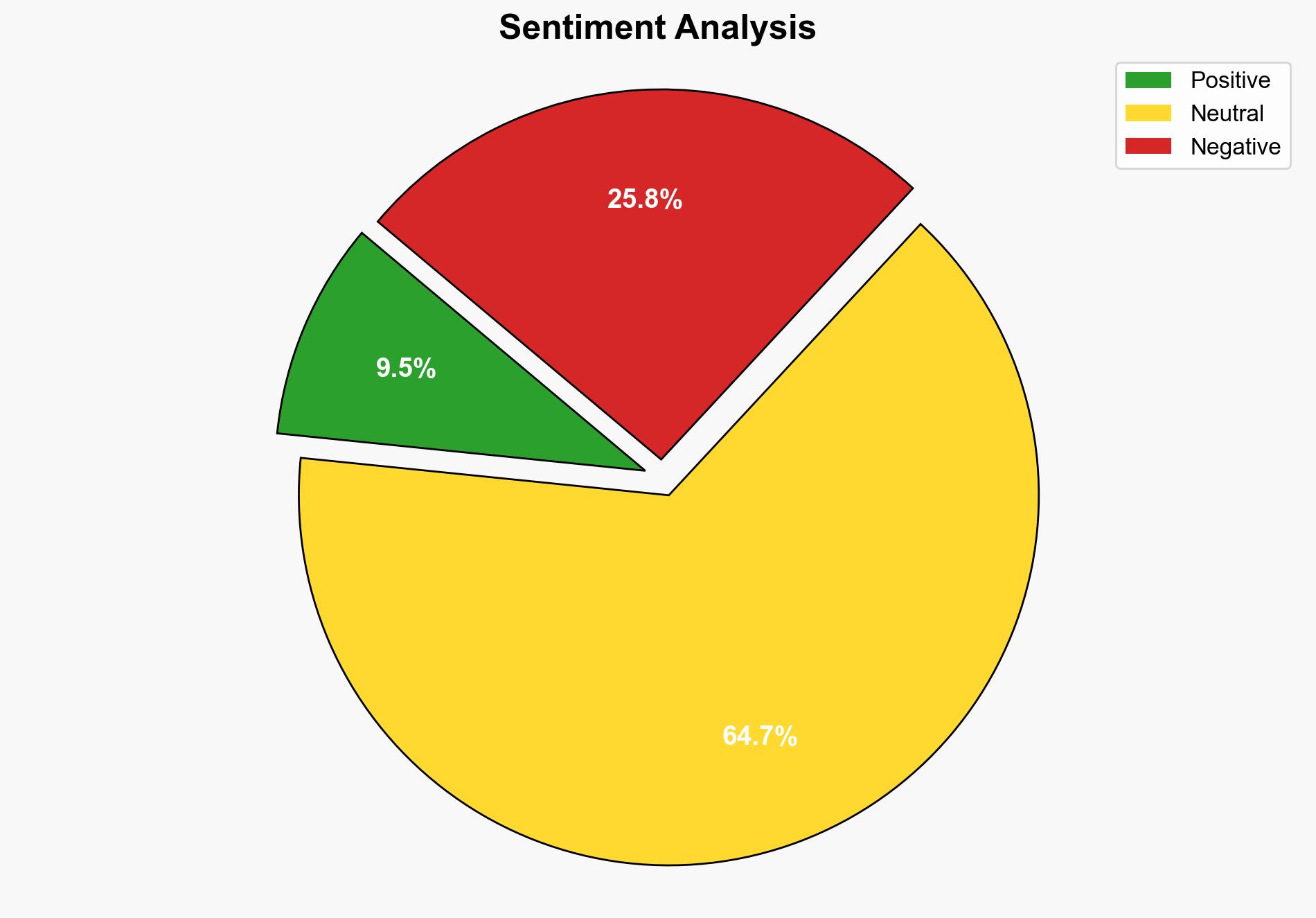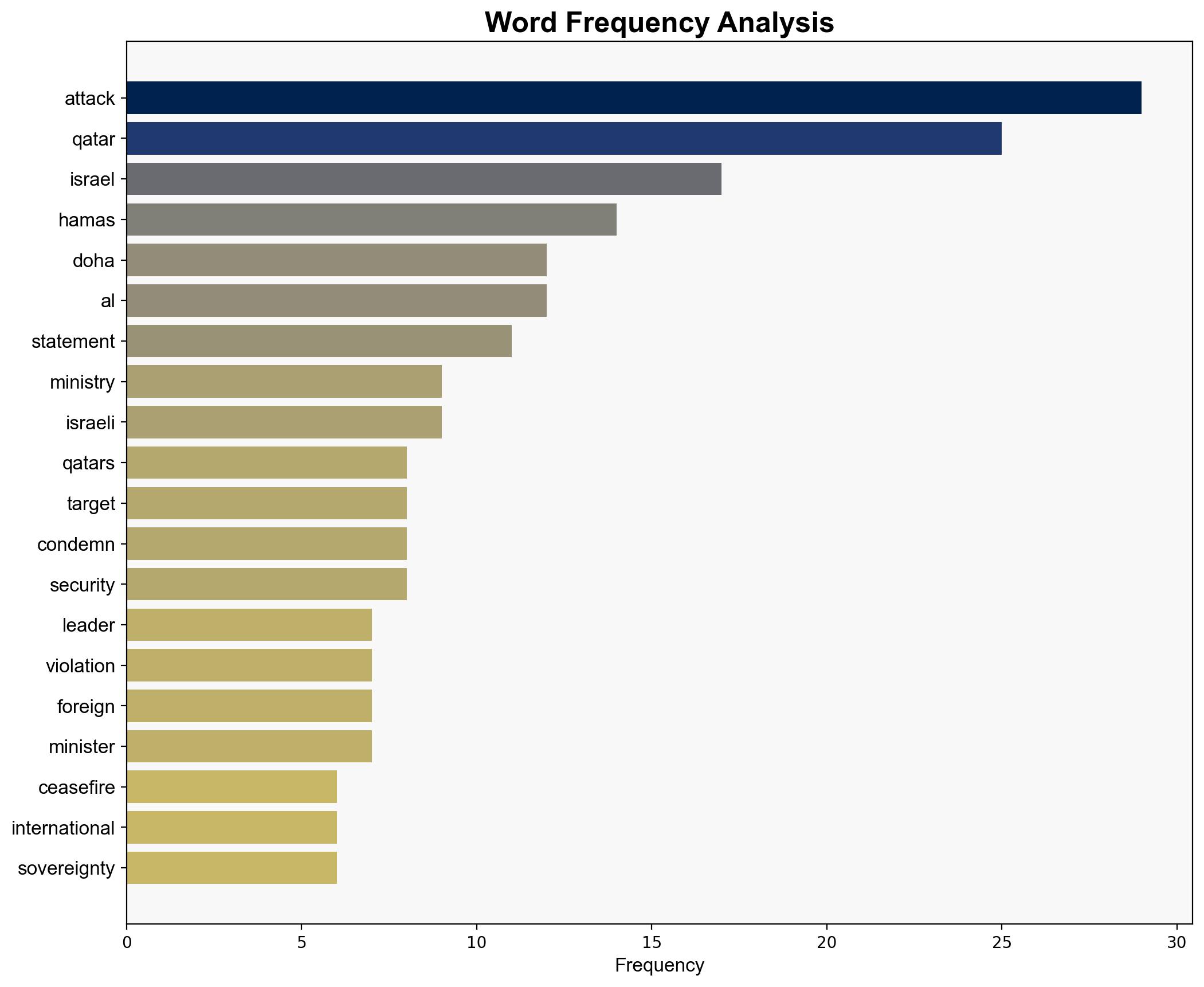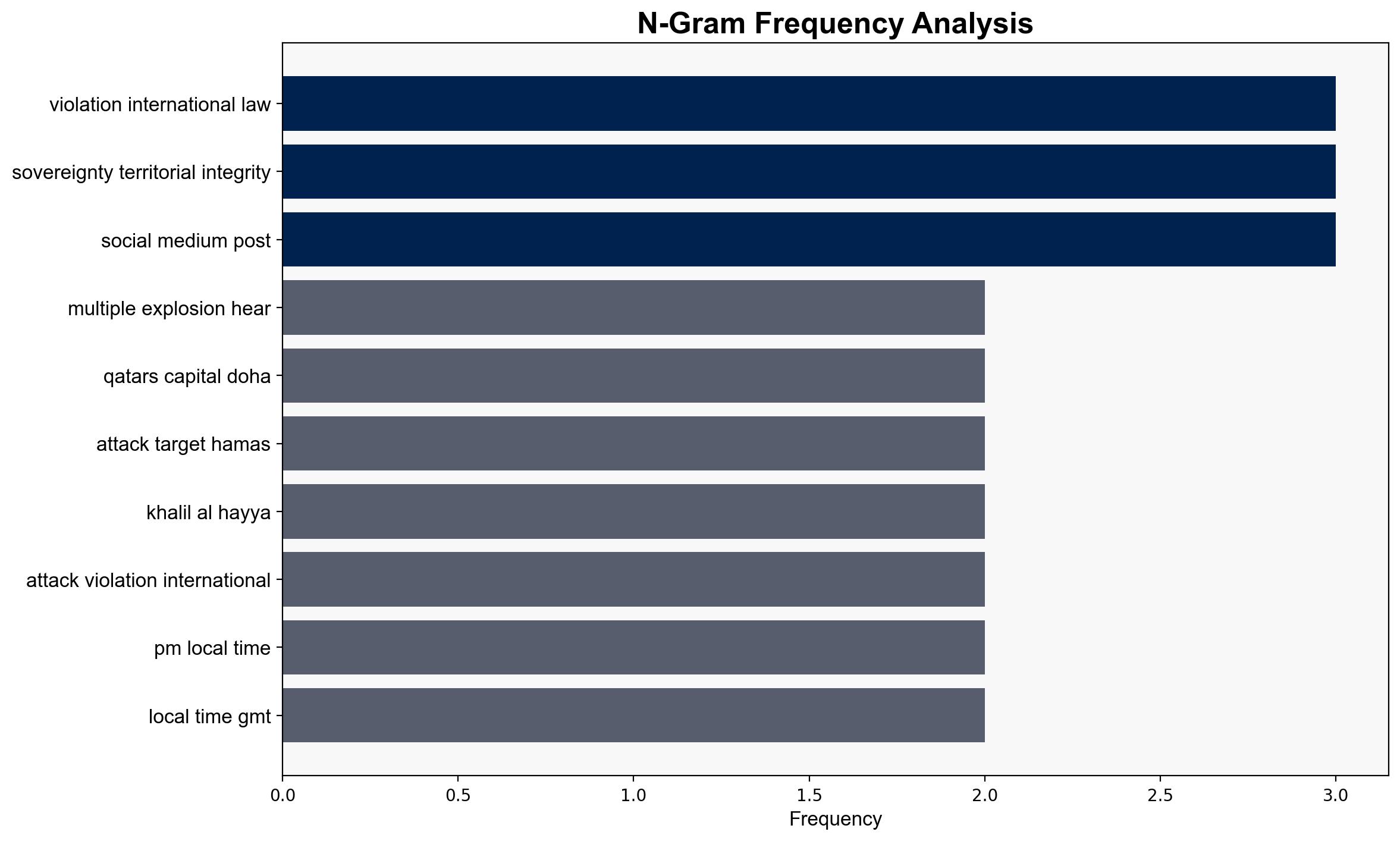Israel attacks Hamas leadership in Qatar All to know – Al Jazeera English
Published on: 2025-09-09
Intelligence Report: Israel attacks Hamas leadership in Qatar All to know – Al Jazeera English
1. BLUF (Bottom Line Up Front)
The Israeli missile attack on Hamas leadership in Qatar represents a significant escalation in the regional conflict, potentially undermining diplomatic efforts for a ceasefire in Gaza. The most supported hypothesis is that Israel acted unilaterally to disrupt Hamas’s operational capabilities and leadership networks. Confidence level: Moderate. Recommended action: Increase diplomatic engagement to de-escalate tensions and prevent further regional destabilization.
2. Competing Hypotheses
1. **Hypothesis A**: Israel conducted the attack independently to target Hamas leadership, aiming to weaken their operational capabilities and disrupt ongoing ceasefire negotiations.
– **Supporting Evidence**: Israeli statements claiming responsibility; the attack’s timing coinciding with ceasefire talks.
2. **Hypothesis B**: The attack was a coordinated effort with tacit support from other regional actors to pressure Hamas into more favorable ceasefire terms.
– **Supporting Evidence**: Lack of immediate international condemnation from some regional players; historical precedents of coordinated actions against Hamas.
Using ACH 2.0, Hypothesis A is better supported due to direct Israeli claims and the immediate context of ongoing tensions with Hamas.
3. Key Assumptions and Red Flags
– **Assumptions**: Israel’s primary motive is to disrupt Hamas operations; regional actors are not directly involved.
– **Red Flags**: Lack of detailed casualty reports; potential bias in source reporting; absence of immediate international response from key regional players.
– **Blind Spots**: Possible undisclosed diplomatic communications between Israel and other regional actors.
4. Implications and Strategic Risks
– **Geopolitical Risks**: Escalation of conflict could lead to broader regional instability, affecting international relations and economic interests.
– **Diplomatic Risks**: Undermining of Qatar’s role as a mediator; potential strain on Israel-Qatar relations.
– **Security Risks**: Increased likelihood of retaliatory attacks by Hamas or its affiliates, potentially extending beyond the region.
5. Recommendations and Outlook
- Engage in multilateral diplomatic efforts to de-escalate tensions and support ceasefire negotiations.
- Enhance intelligence-sharing with regional allies to monitor potential retaliatory threats.
- Scenario Projections:
- Best: Successful ceasefire negotiations leading to reduced hostilities.
- Worst: Escalation into a broader regional conflict involving multiple state and non-state actors.
- Most Likely: Continued low-intensity conflict with sporadic escalations.
6. Key Individuals and Entities
– Khalil al-Hayya
– Khaled Meshaal
– Benjamin Netanyahu
– Yair Lapid
– Suhail al-Hindi
7. Thematic Tags
national security threats, counter-terrorism, regional focus, diplomatic relations




